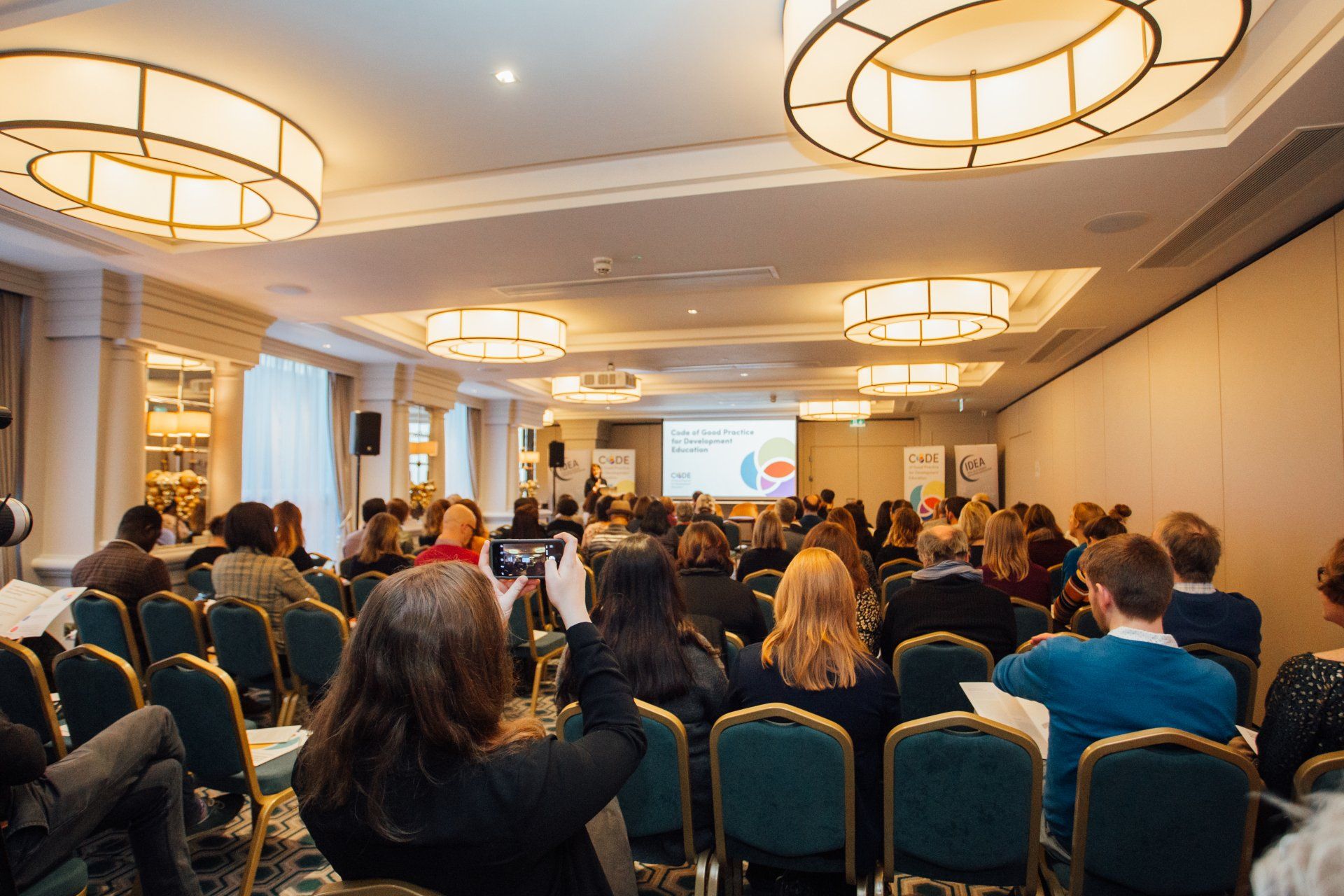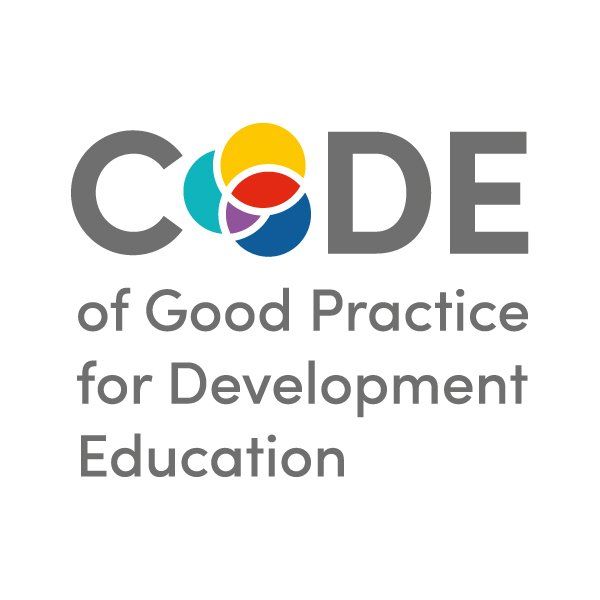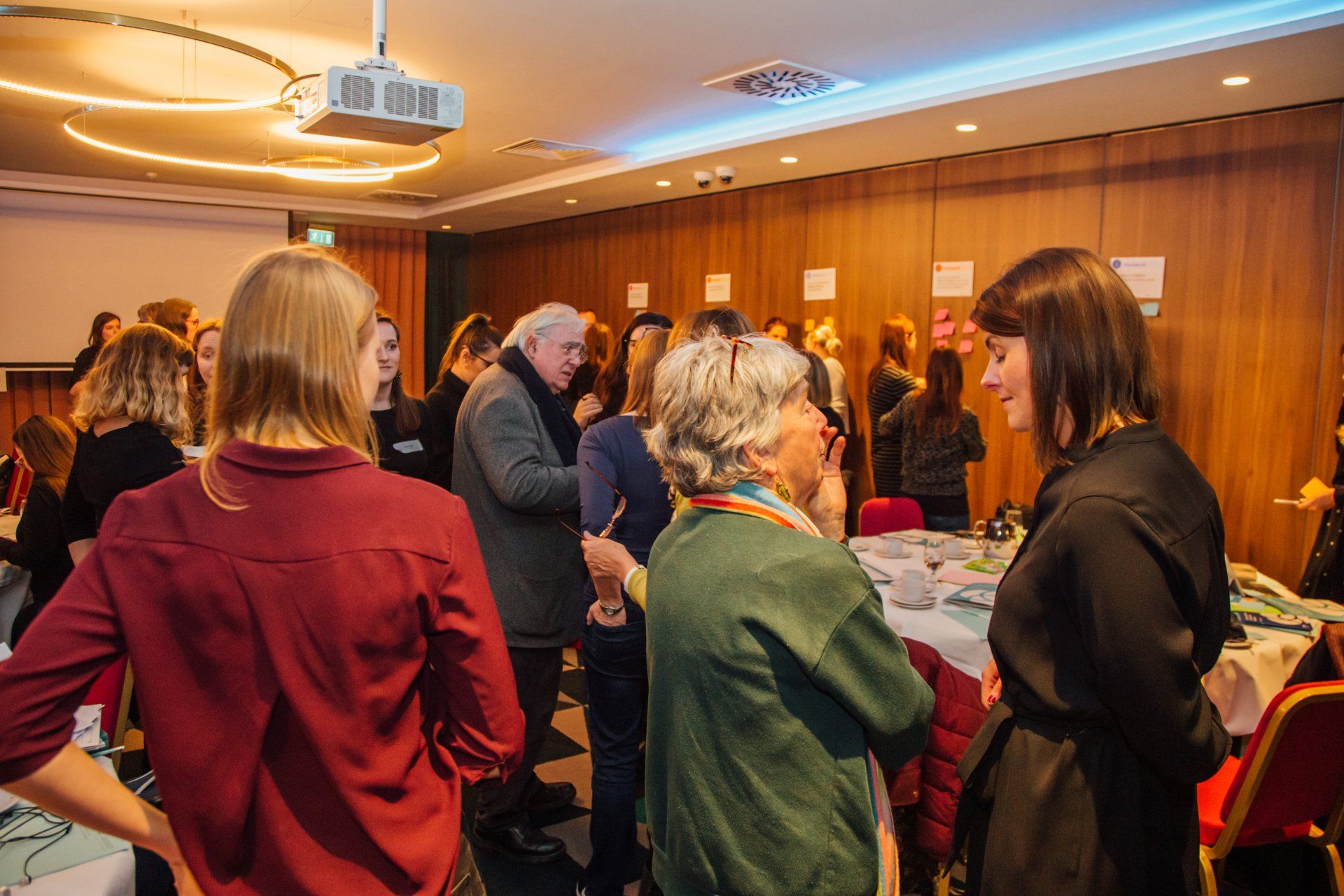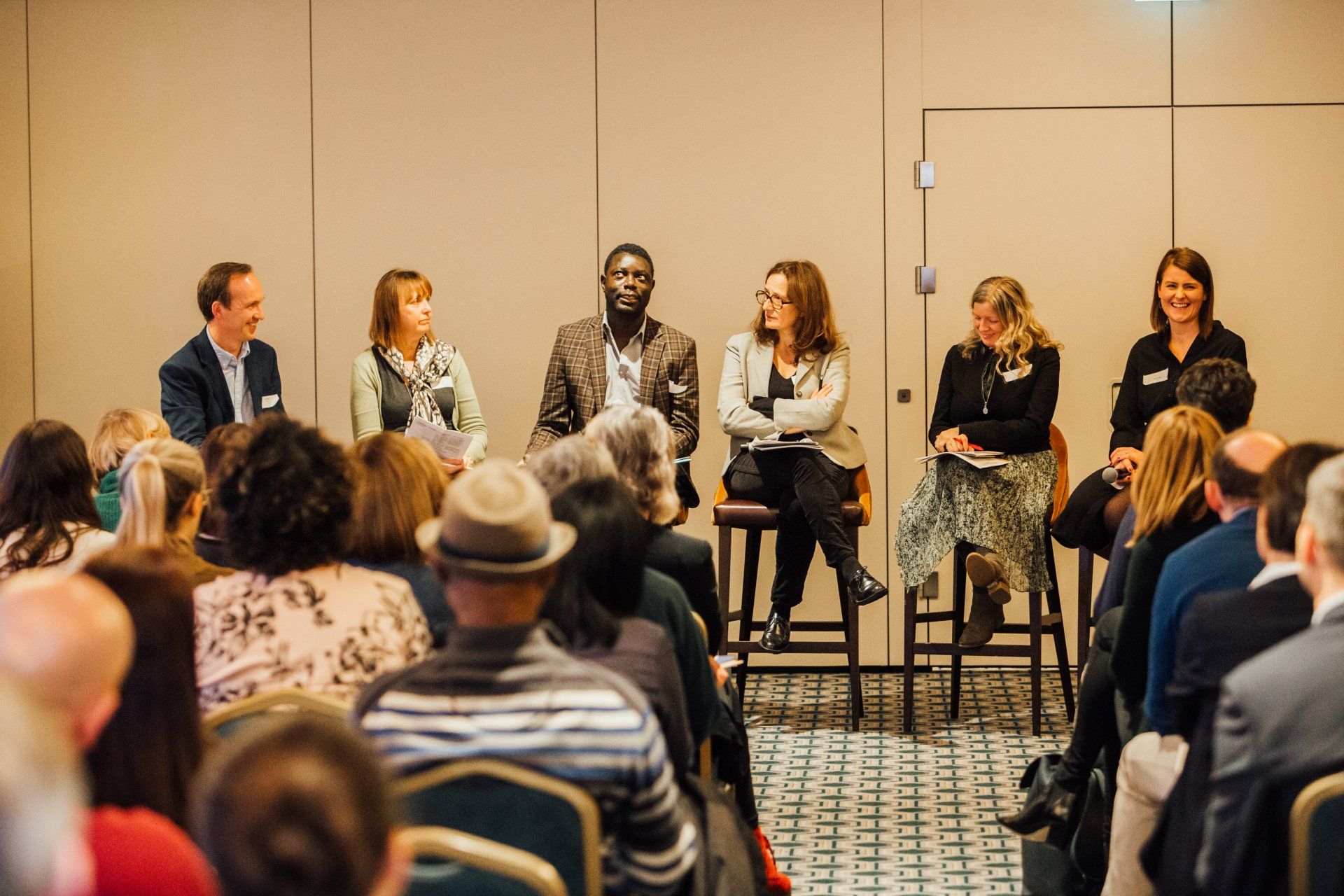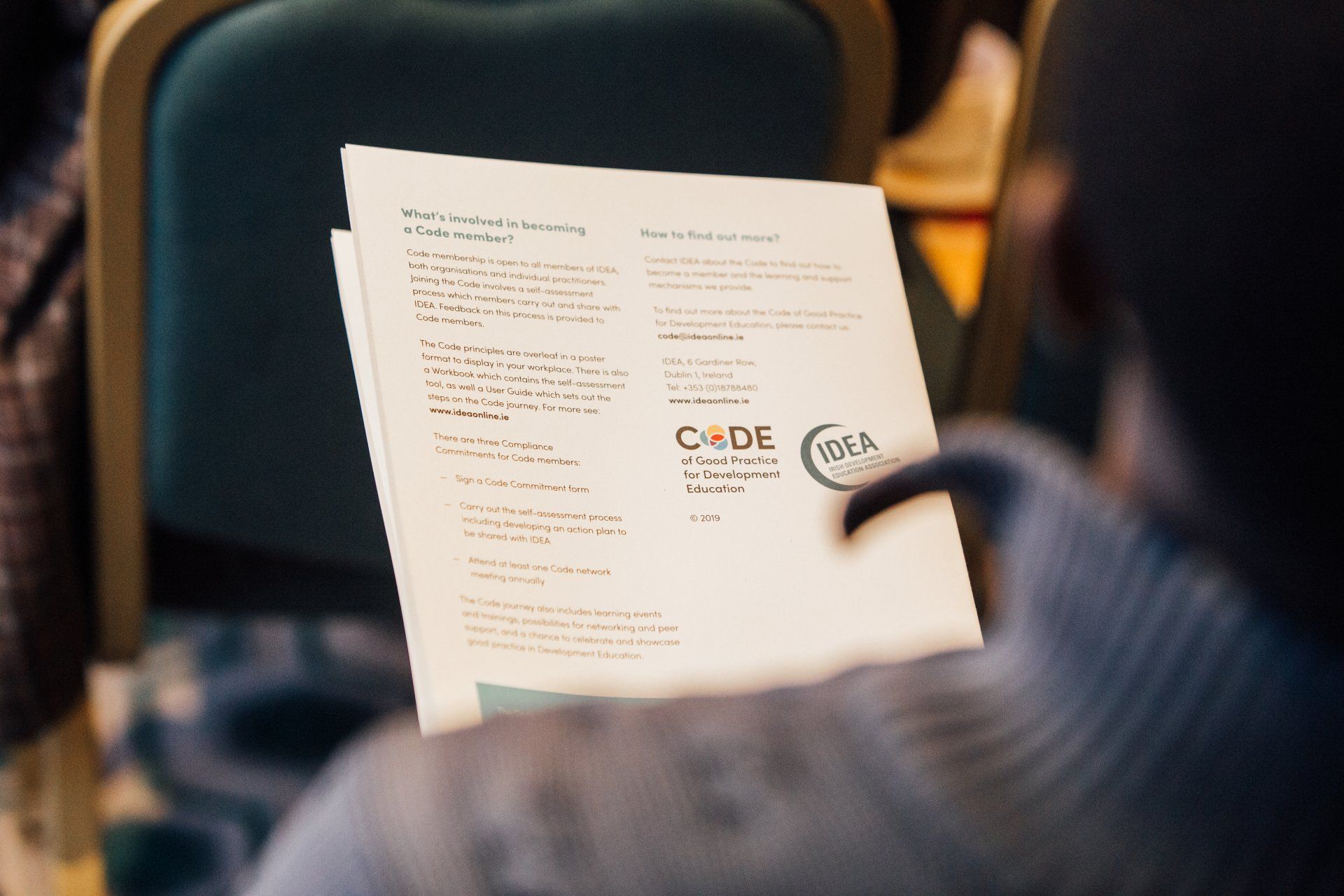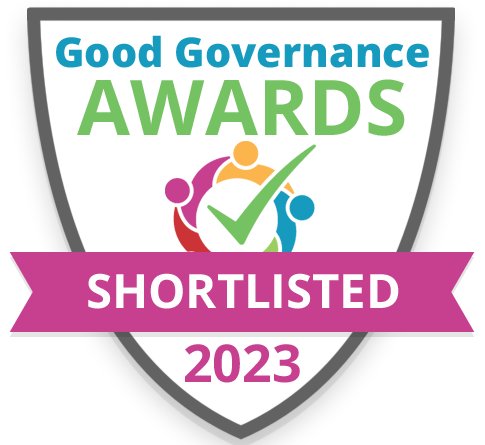IDEA's Code of Good Practice for Development Education
In 2019, IDEA launched the Code of Good Practice for Development Education. The Code was developed by IDEA members and represents a collective agreement across the sector to articulate and strengthen quality Development Education. As of July 2021 there are 34 Code members (organisations and individuals). Code membership involves completing a self-assessment workbook and an action plan, and also sharing learning with other Code members via network meetings and an online platform.
From IDEA’s perspective, the most significant impact of the Code so far is an increase in members’ confidence in talking about their good practice. IDEA members have always discussed good practice, but in the past this was usually limited to their own projects. The Code has enabled members to contextualise their good practice into a broader common framework. By describing and analysing their DE work according to the 12 Code principles, members are now presenting their good practice in an evidence-based, systematic way.
Another important impact is a stronger sense of peer connection amongst Code members. The common framework of the Code facilitates sharing across sectors, encouraging members to break out of their ‘silos’ and to exchange learning with people who are working with different types of learners in different settings and in different contexts such as large development NGOs and specialist Development Education organisations. It also encourages practitioners to mainstream good practices across all groups of learners. IDEA sees itself not as an external judge/scorekeeper but instead as part of the Code learning community, providing feedback and support in the self-assessment process and facilitating the sharing of good practice. IDEA’s role in coordinating the Code is open to change based on the emerging needs of the Code community. Indeed, members are invited to question aspects of the Code itself, as IDEA sees this as evidence of strong critical engagement with the Code.
In terms of tracking the longer-term impact of the Code, members’ self-assessed ratings could be seen as an obvious tool. Annually Code members are required to rate how they fulfil each of the Code Principles, either: minimally/ partially/ substantially/ fully. Early data indicates an improvement in ratings between the first and second datasets submitted. However, IDEA stresses that the Code community is a space in which appreciative enquiry reigns, and in which scores are used to track progress against oneself and not against others. The qualitative evidence presented, and the reflections set out in the conclusion section of each principle, tell a rich story of change that cannot be reduced to a score.
In early 2021, IDEA commissioned research into how Code data can help to articulate the impact of Development Education in Ireland. As the Code becomes embedded in the sector, IDEA expects to see a ripple effect of positive impacts emanating from it. IDEA hopes to see evidence that members’ increased attention to good practice principles (supported by IDEA through the Code processes and through Code-related capacity development interventions) is leading to increased impact of members’ programmes.
The Code was honoured with a GENE Global Education Award for 2020/2021, a fitting recognition that the Development Education sector in Ireland has come of age. Now more than ever before, Development Education practitioners and organisations are working together, in partnership with IDEA, to strengthen quality Development Education.
Images:
- IDEA Code Launch, 03 December, 2019 (picture 1)
- Attendees at the IDEA Code Launch, 03 December, 2019 (picture 2 and main page)
- IDEA Code Logo, Credit: Language (picture 3)
- Panellists at the IDEA Code Launch, 03 December, 2019: Frank Geary, IDEA; Emma Lynch, Tearfund; Momodou Sallah, DeMontfort University; Lydia Ruprect, UNESCO; Orla McBreen, Irish Aid, DFAT; Elaine Mahon, IDEA (picture 4)
- The Code Information Leaflet, at the IDEA Code Launch, 03 December, 2019 (picture 5)
Credit: Images by Graham Seely

